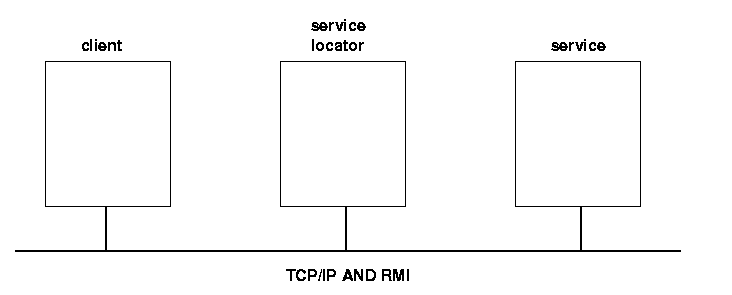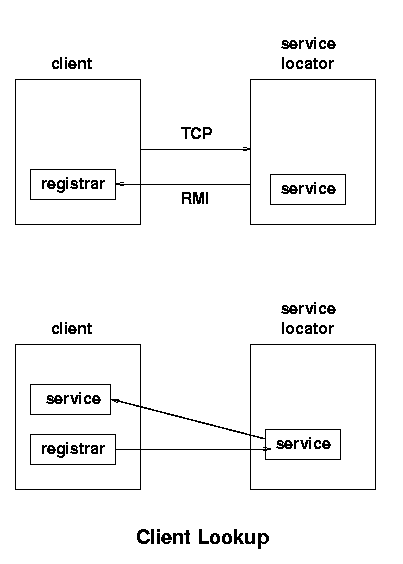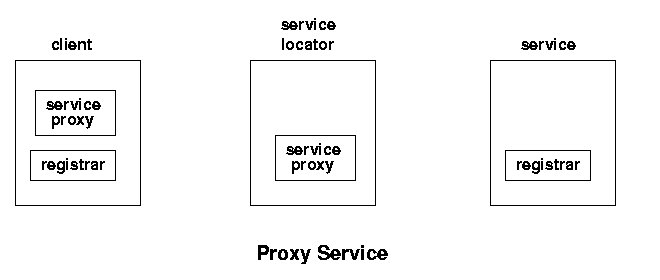
Jini is just one of a large number of distributed systems architectures, including industry-pervasive systems such as CORBA and DCOM. It is distinguished by being based on Java, and deriving many features purely from this Java basis. There are other Java frameworks from Sun which would appear to overlap Jini, such as the Java Application Frameworks. This tutorial does not delve much into the relationships between all these various systems, but the reader should be aware that Jini is only one competitor in a non-empty market. What will condition the success or failure of Jini is partly the politics of the market, but also (hopefully!) the technical capabilities of Jini, and this tutorial will deal with some of the technical issues involved in using Jini.
In a running Jini system, there are three main players. There is

The first stage is for the service to register itself with the
lookup service. At this stage it cannot use RMI, because it has
not yet located the lookup service! So it uses a special TCP
protocol running (by default) on port 4160. Each lookup service
will be listening on this port. When the lookup service gets
a request on this port, it sends an

The service on the other hand, goes through the same mechanism
to get a registrar from the lookup service. But this time it
does something with this, which is to request the
service to be copied across to it.

At this stage there is the original service running back on its host. There is a copy of the service stored in the lookup service, and there is a copy of the service running in the client's JVM. The client can make requests of its service object running in its own JVM.
How does this work if the service is actually a toaster, a printer,
or controlling some piece of hardware? By the time it runs in
the client's JVM, it may be a long way away from its hardware.
In this case, rather than sending out a copy of the service itself,
the service will send out a
